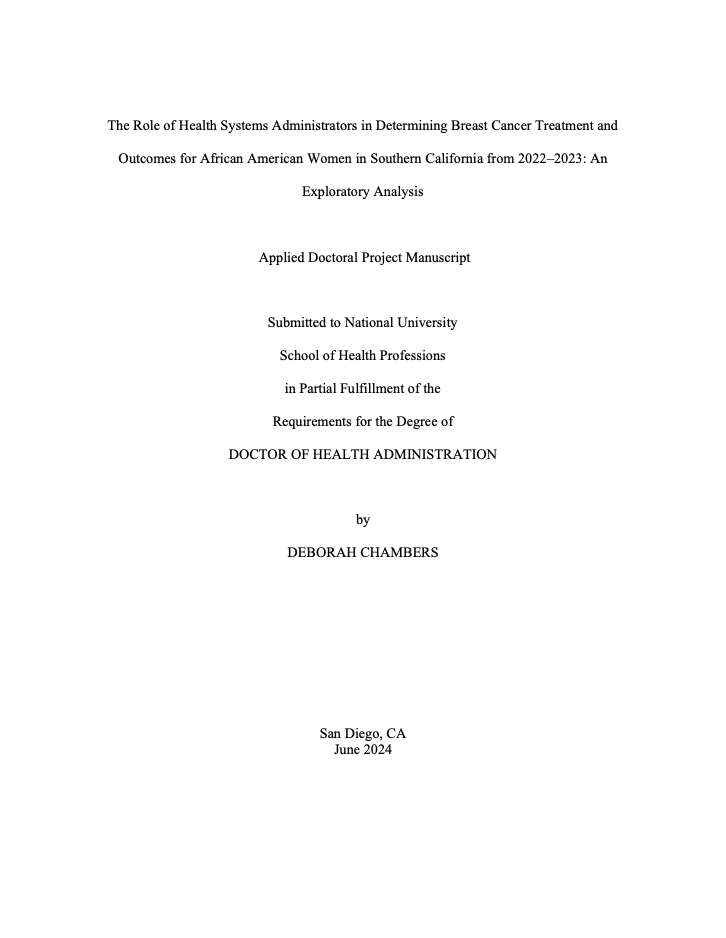The Role of Health Systems Administrators in Determining Breast Cancer Treatment
The purpose of this qualitative, retrospective, multiple case study was to explore the role of health systems administrators in shaping culturally sensitive health policies regarding breast cancer treatment that would benefit African American women in Southern California during the study period from 2022–2023. This project applied systems theory to gain a deeper understanding of how healthcare organizations worked as complex adaptive systems (CAS). The CAS was employed to highlight the behavior of complex systems and the opportunity for misalignment as a function of this complexity (Adebayo et al., 2020). This project adopted a retrospective case study approach to investigate the impact of treatment outcomes from the health systems referred to four university affiliated National Cancer Institute (NCI)-Designated Cancer Centers in Southern California.
The purpose of this qualitative, retrospective, multiple case study was to explore the role of health systems administrators in shaping culturally sensitive health policies regarding breast cancer treatment that would benefit African American women in Southern California during the study period from 2022–2023. This project applied systems theory to gain a deeper understanding of how healthcare organizations worked as complex adaptive systems (CAS). The CAS was employed to highlight the behavior of complex systems and the opportunity for misalignment as a function of this complexity (Adebayo et al., 2020). This project adopted a retrospective case study approach to investigate the impact of treatment outcomes from the health systems referred to four university affiliated National Cancer Institute (NCI)-Designated Cancer Centers in Southern California.
The purpose of this qualitative, retrospective, multiple case study was to explore the role of health systems administrators in shaping culturally sensitive health policies regarding breast cancer treatment that would benefit African American women in Southern California during the study period from 2022–2023. This project applied systems theory to gain a deeper understanding of how healthcare organizations worked as complex adaptive systems (CAS). The CAS was employed to highlight the behavior of complex systems and the opportunity for misalignment as a function of this complexity (Adebayo et al., 2020). This project adopted a retrospective case study approach to investigate the impact of treatment outcomes from the health systems referred to four university affiliated National Cancer Institute (NCI)-Designated Cancer Centers in Southern California.

